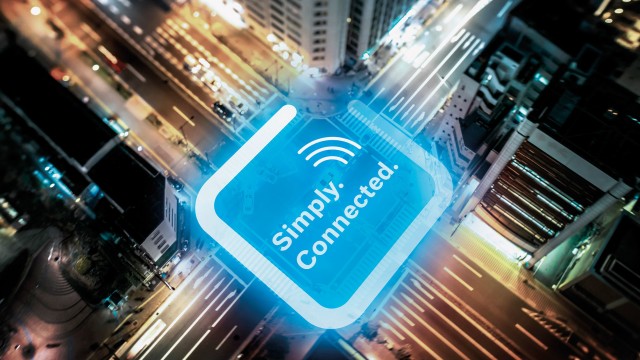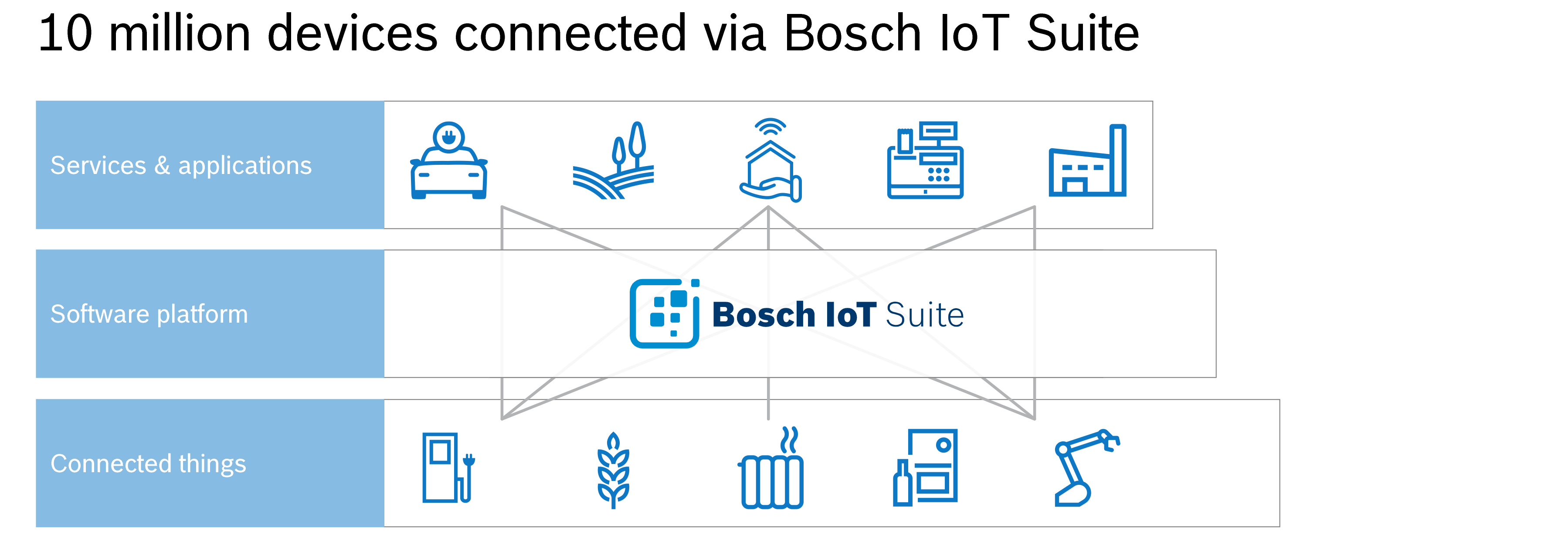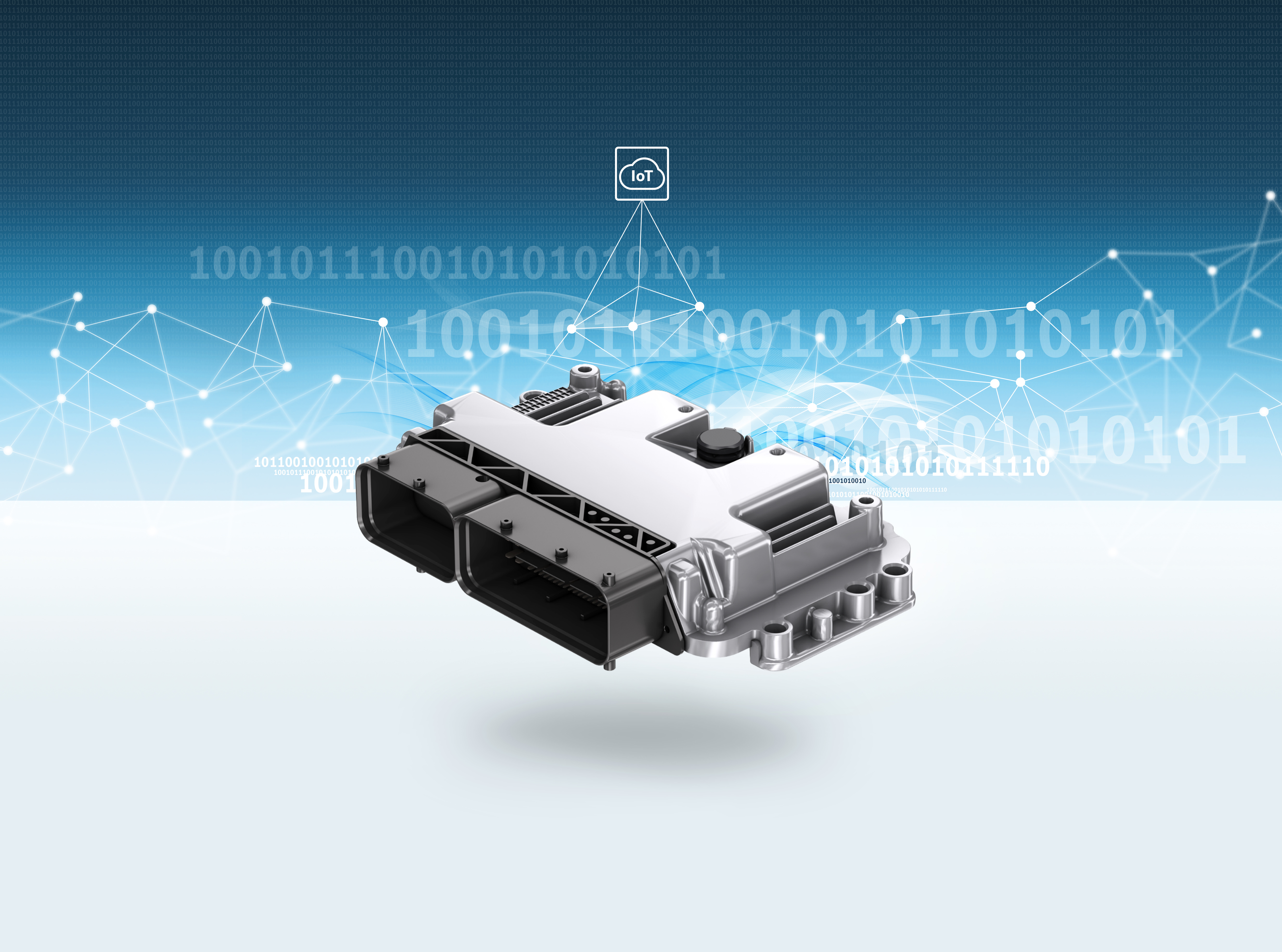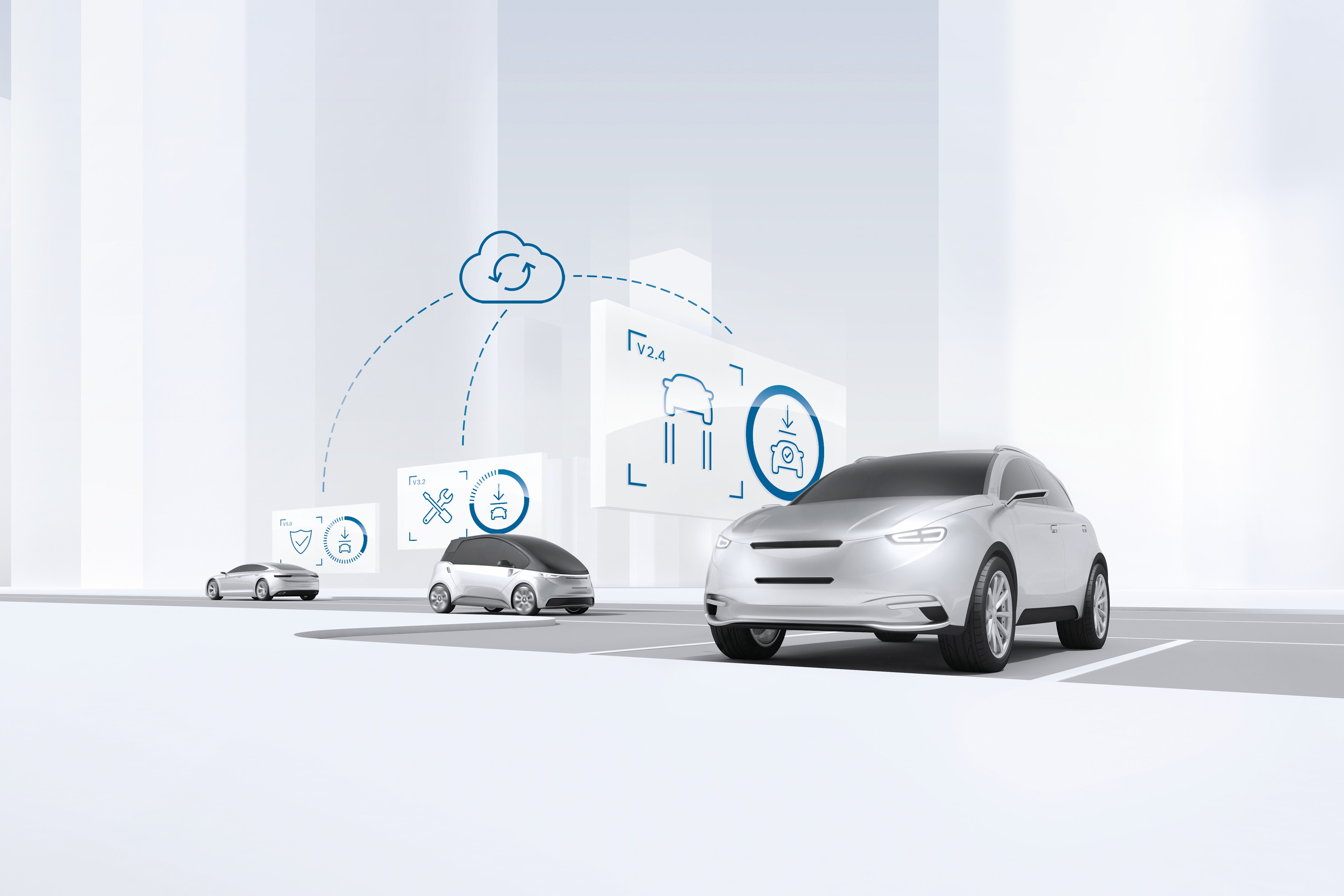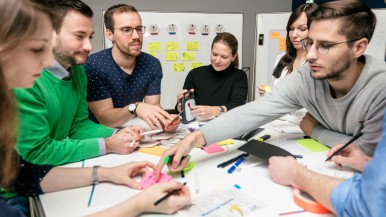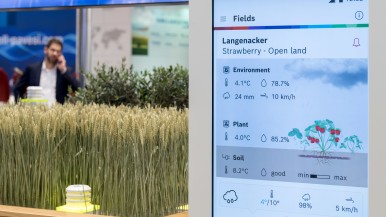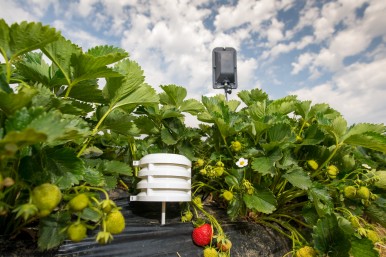Berlin – What do cars, mobile machinery, an energy provider’s data platform, and baby buggies have in common? Their connectivity comes courtesy of the Bosch IoT Suite, the core product of Bosch.IO, the new wholly owned Bosch subsidiary. The subsidiary has already deployed its IoT platform to carry out more than 250 IoT projects jointly with customers in the retail, energy, building, manufacturing, consumer goods, agriculture, and mobility sectors. “Bosch.IO projects epitomize the efficient development of scalable and secure IoT solutions using the cloud and the open-source-based Bosch IoT Suite,” says Dr. Stefan Ferber, a member of the Bosch.IO executive management. The Bosch IoT Suite services customers opt for are then integrated into the cloud environments the customers prefer for their projects.
Bosch.IO GmbH combines the full set of consulting and implementation skills to deliver IoT and digital projects, focusing on the retail, energy, building, industry, consumer goods, agriculture, and mobility sectors. Bosch.IO has 900 experts on board, including consultants, coaches, cloud software developers, digital marketers, UX and business model designers, solution architects, and project managers. The interdisciplinary team works together at locations in Germany, Bulgaria, Spain, Japan, China, Singapore and the U.S. to serve customers around the world. Drawing on a broad base of industry knowledge and a deep well of software expertise, this Bosch company has proven its merits in more than 250 IoT projects.
Learn more at www.bosch.io, www.bosch-iot-suite.com, www.blog.bosch.io
The Bosch Group is a leading global supplier of technology and services. It employs roughly 395,000 associates worldwide (as of December 31, 2020). The company generated sales of 71.5 billion euros in 2020. Its operations are divided into four business sectors: Mobility Solutions, Industrial Technology, Consumer Goods, and Energy and Building Technology. As a leading IoT provider, Bosch offers innovative solutions for smart homes, Industry 4.0, and connected mobility. Bosch is pursuing a vision of mobility that is sustainable, safe, and exciting. It uses its expertise in sensor technology, software, and services, as well as its own IoT cloud, to offer its customers connected, cross-domain solutions from a single source. The Bosch Group’s strategic objective is to facilitate connected living with products and solutions that either contain artificial intelligence (AI) or have been developed or manufactured with its help. Bosch improves quality of life worldwide with products and services that are innovative and spark enthusiasm. In short, Bosch creates technology that is “Invented for life.” The Bosch Group comprises Robert Bosch GmbH and its roughly 440 subsidiary and regional companies in some 60 countries. Including sales and service partners, Bosch’s global manufacturing, engineering, and sales network covers nearly every country in the world. With its more than 400 locations worldwide, the Bosch Group has been carbon neutral since the first quarter of 2020. The basis for the company’s future growth is its innovative strength. At 129 locations across the globe, Bosch employs some 73,000 associates in research and development, of which nearly 34,000 are software engineers.
Additional information is available online at www.bosch.com, www.iot.bosch.com, www.bosch-press.com, www.twitter.com/BoschPresse.

